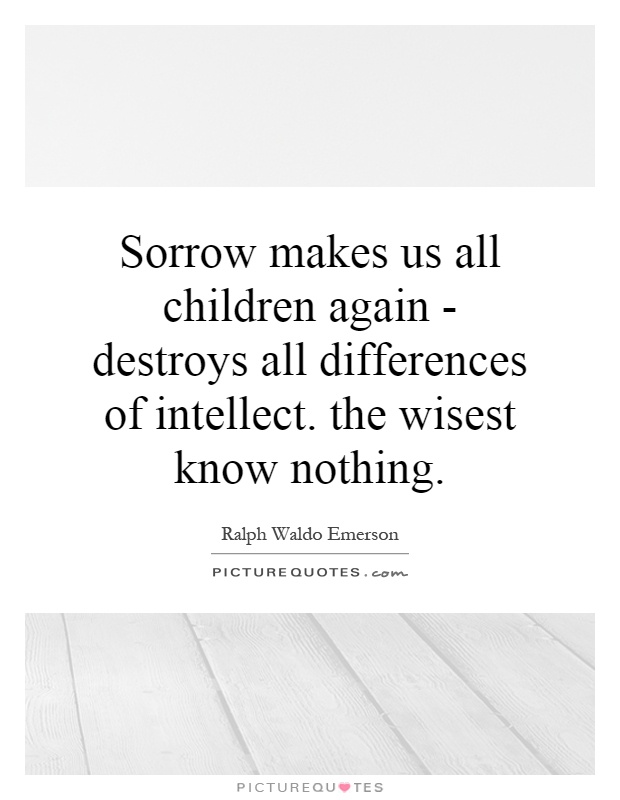Sorrow makes us all children again - destroys all differences of intellect. the wisest know nothing

Sorrow makes us all children again - destroys all differences of intellect. the wisest know nothing
Ralph Waldo Emerson, a renowned American essayist, poet, and philosopher, often explored the complexities of human emotions and the impact they have on our perception of the world. In his essay "Experience," Emerson delves into the idea that sorrow has the power to strip away our intellectual differences and reduce us to a state of childlike vulnerability. He suggests that in moments of deep sorrow, even the wisest among us are rendered powerless, as our intellect is overshadowed by the overwhelming weight of our emotions.Emerson's assertion that sorrow makes us all children again speaks to the universal nature of grief and the way it can level the playing field, erasing the distinctions of intellect and status that often separate us. In the face of profound loss or heartache, we are all brought to our knees, humbled by the raw intensity of our emotions. In these moments, our intellectual prowess and knowledge seem insignificant in comparison to the overwhelming force of sorrow.
Emerson's statement that sorrow destroys all differences of intellect suggests that grief has the power to break down the barriers we construct between ourselves and others. In the depths of sorrow, we are stripped of our defenses and pretenses, revealing our shared humanity and vulnerability. In this state of emotional nakedness, our intellectual differences fade into the background, leaving us united in our shared experience of pain and loss.
Emerson goes on to claim that "the wisest know nothing" in the face of sorrow, implying that even those who possess great knowledge and insight are rendered powerless in the face of overwhelming grief. This idea challenges the notion that intellect is the ultimate source of wisdom, suggesting instead that true wisdom lies in our ability to navigate the complexities of human emotion with grace and humility.












 Friendship Quotes
Friendship Quotes Love Quotes
Love Quotes Life Quotes
Life Quotes Funny Quotes
Funny Quotes Motivational Quotes
Motivational Quotes Inspirational Quotes
Inspirational Quotes